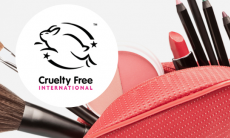
If you’ve ever had a look at your shampoo bottle, you might have noticed it sometimes says “not tested on animals”. Animal testing for cosmetics is a controversial issue, and has been in the news many times. It’s worth learning about what it is, and what the ethical issues at work are – it might be relevant for your studies in future, especially in philosophy or religious education. Remember the “Three Rs” – Replacement of animal testing, Reduction of animals used, and Refinement of methods.
Animal testing usually means testing a product – be it a complete product or different ingredients of that product – on animals. They do this to see if it produces an allergic reaction, or has a negative effect on organic tissue. It’s usually on mice, rats and rabbits, but it can be on other animals too. As well as cosmetic testing, there’s also testing for medicines, which is even more hotly debated than cosmetics testing.
In the UK, animal testing has been banned since 1998 for both finished cosmetics and their ingredients. That’s good, but if you buy a product that’s made outside of the UK, there is a possibility that product may have been tested on animals. Even in countries like the US and Australia, bans are only just being considered, so animal testing is still technically legal. Many beauty products are made outside of the UK, so if you don’t want to buy something that’s been tested on animals, make sure you read the label. There’s a logo called the “leaping bunny” logo, which shows a happy-looking rabbit leaping for the sky. This indicates that the product has not been tested on animals.
People who support animal testing may ask “what’s the alternative? How else will we know if this product is safe for humans?” and the answer is that there are many alternatives to animal testing in this day and age. Firstly, there is a list of safe ingredients that companies can use, so there would be no need to test these products on animals as the ingredients have already been deemed safe for manufacturing. Then, there are ways of seeing if an ingredient is harmful by using test tubes and other chemical experiments.
In the old days, it might have been difficult to get cruelty-free products that haven’t been tested on animals. These days, however, it’s much easier. Do you think that products that haven’t been tested on animals are difficult to find, expensive, and niche? Think again. Tesco own brand, Superdrug and Boots own brands are all free from animal testing, as are hundreds more brands readily available on the high street and your local supermarket. You don’t have to buy ethical products from an eccentric health food store anymore. But that doesn’t mean that you shouldn’t treat yourself, however – the Body Shop and Lush both go the extra mile for the environment, and you’re entitled to some fancy toiletries every once in a while. Especially if you know they haven’t been tested on innocent animals.
Image from: https://www.crueltyfreeinternational.org/LeapingBunny

0 Comment:
Be the first one to comment on this article.